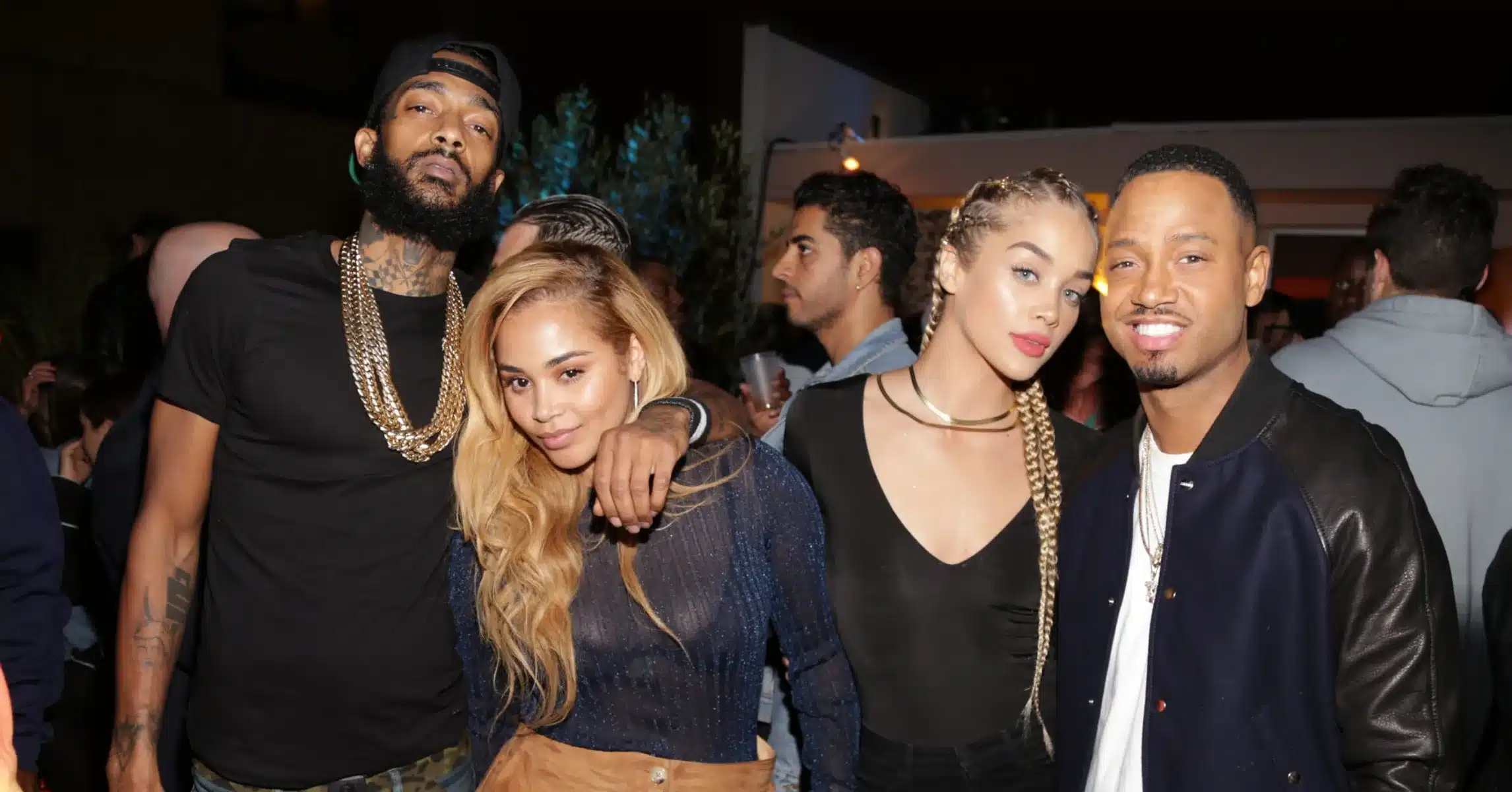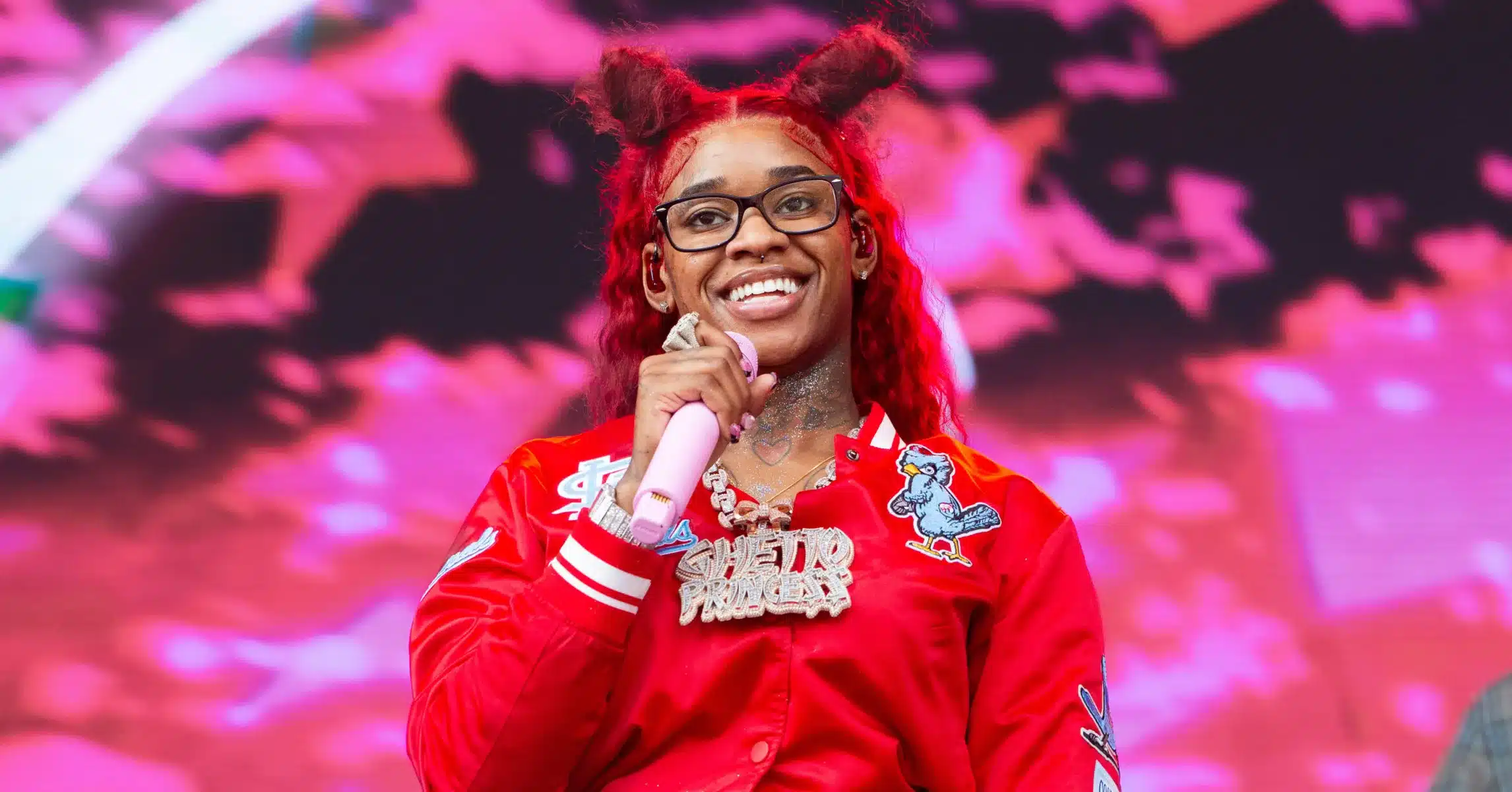Drake’s racial identity has been a recurring topic of debate, and the conversation has been reignited by Dr. Umar Johnson. In a provocative social media post, Dr. Umar posed a direct question to the rapper, urging Drake to clarify whether he identifies as a Black man or as mixed race.
Through his Instagram video, Dr. Umar conveyed his respect for Drake but emphasized the importance of clarity on such a crucial issue. This public challenge has brought attention to the broader discussions surrounding race and identity, with various public figures and fans weighing in on the matter.
Drake’s Heritage Under Scrutiny
Drake’s mixed heritage has become a major topic of discussion, especially during his heated rivalry with Kendrick Lamar. The issue has now been pushed into the spotlight again by Dr. Umar Johnson, who has publicly asked the rapper to clarify his racial identity. Dr. Umar took to Instagram to ask if Drake identifies as a Black man or if he sees himself as mixed race.
In a video shared on social media, Dr. Umar said, ‘For my brother Drake, I need you to clarify whether or not you are a Black man.’ He expressed his respect for Drake but emphasized the need for clarity on his racial identity. Dr. Umar invited Drake for a sit-down discussion in Toronto to clear the air further.
The Nature of Identity
Dr. Umar’s questions didn’t stop there. He delved deeper by asking Drake if he identifies as an ‘untouchable’ or primarily as a mixed-race individual. Dr. Umar is known for his strong opinions on racial identity, and his request for clarity suggests underlying concerns about Drake’s public persona.
‘Some people believe you only claim Black when it’s convenient,’ Dr. Umar added, noting that he doesn’t follow Drake closely but has heard these claims from others. This statement puts pressure on Drake to address these perceptions head-on, or risk being seen as inauthentic.
[instagram-embed-display instagram_id=’C9dX_mrBELp’]
[twitter-embed-display twitter_url=’https://twitter.com/ArtOfDialogue_/status/1813019039926788171′]
Support from Other Personalities
Despite Dr. Umar’s pointed questions, Drake has received support from other influential figures. When Kendrick Lamar questioned Drake’s Blackness in his diss tracks, media personality Michael Eric Dyson came to Drake’s defense.
Dyson criticized Kendrick’s approach in a column, describing it as a reactionary move that unfairly targeted Drake. He argued that questioning Drake’s Blackness says more about the rigid boundaries of identity imposed by others than it does about Drake himself.
‘In a single spurious stroke of Kendrick’s claustrophobic Blackness, Drake went from a brilliant embodiment of rap’s genius to a cultural carpetbagger,’ Dyson wrote. He lamented the speed with which people were willing to dismiss Drake’s contributions to Hip Hop.
Broader Implications
The conversation about Drake’s racial identity touches on broader issues within society. It raises questions about how mixed-race individuals navigate their identities and the pressures they face to conform to rigid racial categories.
Dyson expanded on this by pointing out that Drake has been a prominent figure in Hip Hop for 15 years. He argued that Drake’s contributions shouldn’t be overshadowed by questions of his racial authenticity. Instead, his impact on the genre should be acknowledged and celebrated.
Dyson used the example of other successful Black individuals from outside the U.S., like Idris Elba, to illustrate that nationality shouldn’t determine someone’s authenticity within Black culture. The discourse reflects a need for a more inclusive understanding of identity.
Public Reaction
Dr. Umar’s comments have sparked discussions among fans and the general public. Some agree with his call for clarity, while others feel that Drake’s racial identity shouldn’t be questioned. The debate highlights the complex nature of race and identity in today’s world.
Social media platforms have been buzzing with opinions. Some users have echoed Dr. Umar’s sentiments, suggesting that Drake sometimes appears to distance himself from his Black heritage. Others have defended Drake, pointing out that his mixed heritage is an integral part of his identity.
This public discourse showcases the varied perspectives on what it means to be Black and how individuals with mixed heritage navigate their identities. It’s a conversation that extends beyond Drake and touches on broader societal themes.
Drake’s Silence
As of now, Drake has not publicly responded to Dr. Umar’s comments. His silence has left room for speculation and further debate. Fans and critics alike are eager to hear his stance on the matter.
Drake’s response, or lack thereof, will likely influence public opinion. If he chooses to address the issue, it could either quiet the controversy or ignite further discussion. His stature in the music industry makes his perspective significant.
The pressure is on for Drake to clarify his identity. Whether he will choose to engage in this conversation remains to be seen, but his decision will undoubtedly have an impact on how he is perceived.
Historical Context
The scrutiny of Drake’s racial identity isn’t an isolated incident. Historically, mixed-race individuals have faced challenges in navigating their identities. Societal expectations often force them to choose one aspect of their heritage over the other.
This historical context adds another layer to the discussion. It’s not just about Drake; it’s about the broader experiences of those who are racially mixed. The pressures they face to conform to one identity can be immense.
Understanding this context is crucial for a more nuanced conversation. It allows for a deeper exploration of the complexities surrounding race and identity. Drake’s situation serves as a contemporary example of these ongoing challenges.
Conclusion
In the end, the question of Drake’s racial identity raises important discussions about race, identity, and authenticity. The debate, fueled by Dr. Umar’s comments, has broader implications for society’s understanding of mixed-race individuals.
As the conversations continue, it remains to be seen how Drake will address these concerns and what impact his response will have on his public image and legacy.
The ongoing debate about Drake’s racial identity brings to light significant conversations about race, identity, and cultural authenticity. Dr. Umar’s provocative questions have made headlines and sparked widespread discussions. As mixed-race identities become more visible, understanding and empathy are crucial.
How Drake responds to Dr. Umar’s challenge will play a pivotal role in shaping public opinion and possibly influencing similar discussions in the future. It highlights the complexities surrounding identity and race, emphasizing the need for a broader societal understanding.




